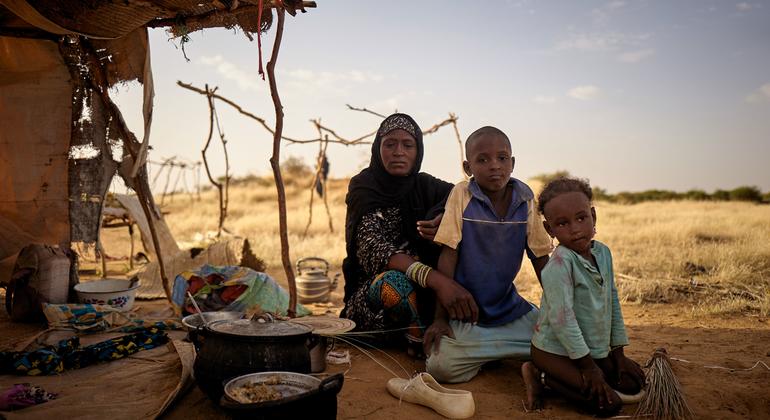The rights experts – who include the UN Working Group on Mercenaries – said that a “climate of terror and complete impunity” has surrounded Wagner’s activities in the northwest African country.
Systematic killings
“We are particularly worried by credible reports that over the course of several days in late March 2022, Malian armed forces accompanied by military personnel believed to belong to the Wagner Group, executed several hundred people, who had been rounded up in Moura, a village in central Mali,” the UN experts said.
Founded by Russian businessman Yevgeny Prigozhin, the Wagner Group is also widely reported to be involved in fighting in Ukraine, having recruited thousands of convicts from Russian jails.
Concerns about the Wagner Group have surfaced elsewhere in recent months, too, notably in the Central African Republic (CAR), where the UN human rights office OHCHR, published information indicating that the mercenaries were among those “committing systemic and grave human rights and international humanitarian law violations, including arbitrary detention, torture, disappearances and summary execution, a pattern that continues unabated and unpunished”.
UN-appointed independent rights experts said that they had also received reports that Wagner Group officers committed rape and sexual violence against women, men, and young girls across CAR.
“It is not clear how many people have been victims of sexual violence because survivors are terrified to bring their cases to justice for fear of retaliation,” they said.
Peuhl minority targeted
In addition to the alleged involvement of the Wagner Group in Mali’s Moura atrocity, the experts said that there were also persistent and credible accounts of multiple serious rights violations committed against mainly ethnic Peuhl individuals.
These include torture, rape, pillaging, arbitrary detentions and enforced disappearances.
State-sanctioned violence
In a statement, the rights experts expressed concern at the “increased outsourcing of traditional military functions” to the Wagner Group in Mali, where the Government has been fighting a jihadist insurgency in north and central regions, for years.
The experts added that the private contractors had also carried out counter-terrorism operations, including in Nia Ouro, Gouni and Fakala, before urging the Malian authorities to prohibit private individuals from taking part in hostilities.
“The use of mercenaries, mercenary-like actors and private security and military companies only exacerbates the cycle of violence and impunity prevailing in the country,” the experts insisted.
Victims of the Wagner Group have faced significant challenges in accessing justice and remedy for the human rights abuses, including sexual violence, and related crimes committed against them, the experts said, “particularly in light of the secrecy and opacity surrounding Wagner’s activities in Mali”.
Afraid to speak out
The experts added that the threat of reprisals against those daring to speak out had also created “an overall climate of terror and complete impunity for victims of the Wagner Group’s abuses”.
In an exclusive interview with UN News, the UN refugee agency’s (UNHCR) representative in Mali, Mohamed Touré, explained that jihadists continue to terrorise and target civilians in rural areas on a daily basis.
Mr. Touré was speaking after a recent attack on N’Tillit village in northern Mali, forcing more than 3,700 Burkinabé refugees and local Malians to flee to Gao, the nearest city located 120 kilometres away.
The majority of displaced are women and children who walked for hours without food, fearing for their lives to find safety, the UNHCR official said.


